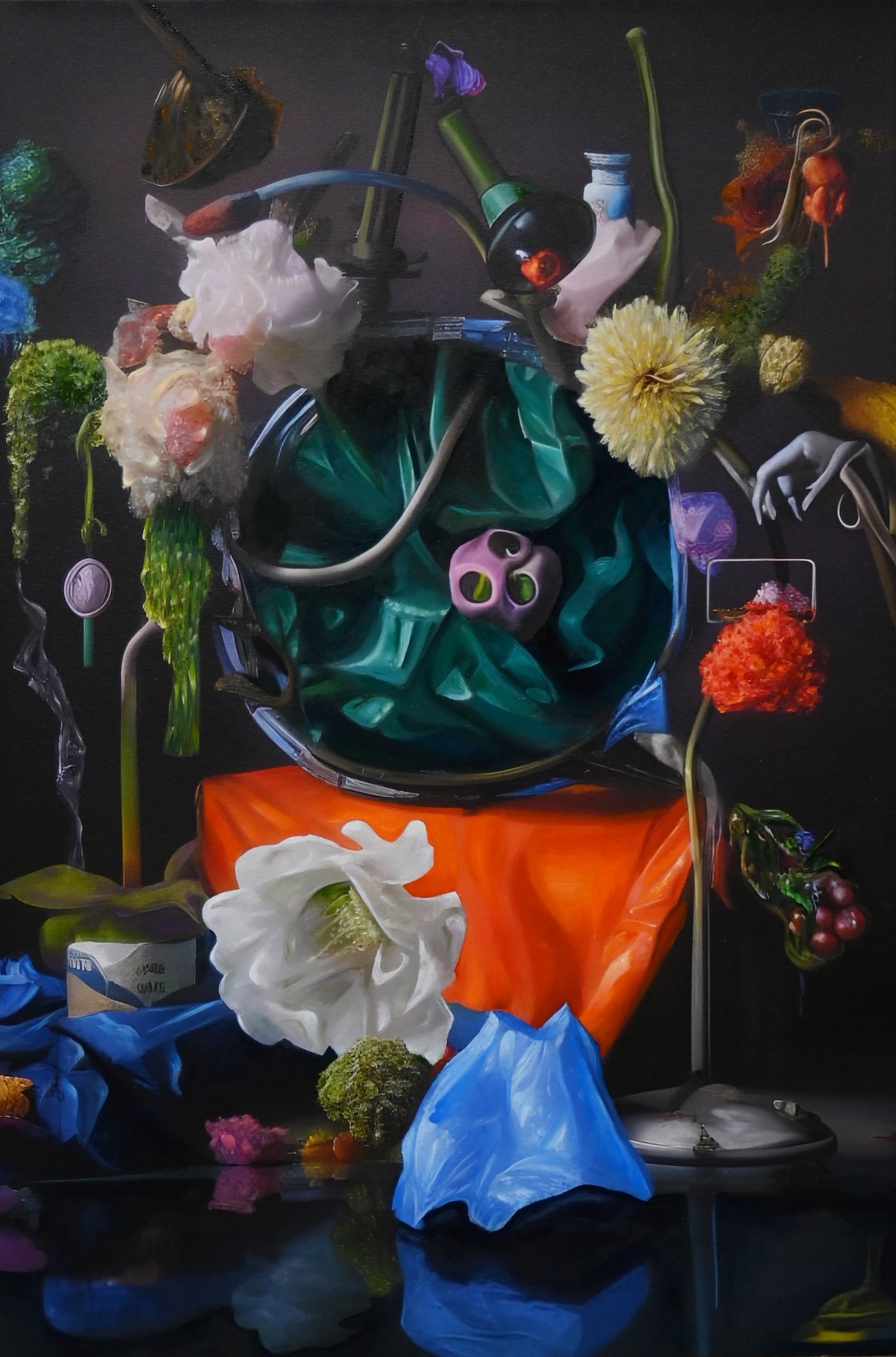ALISON PASQUINI

“I am fascinated by things simultaneously charming and strange, recognizable yet inconceivable. Paradox opens space between reality and possibility where I can blurry the boundary between binary concepts and explore otherworldly alternatives. Using traditional painting methods alongside new digital techniques further satisfies my desire for the unity of opposites. Navigating between paint and pixel, material and immaterial, allows me to express worldly concern in a way which feels enigmatic.”
Alison Pasquini, a visual artist and educator residing in New York City, originally hails from Massachusetts and obtained her BFA in painting from Massachusetts College of Art and Design in 2014. Initially drawn to watercolor, she developed a passion for oil painting during her undergraduate studies, expanding her repertoire to include acrylic, oil, and digital painting as she completed her MFA at the School of Visual Arts in 2023. Pasquini's work, characterized by surrealism and biomorphism, delves into ecological concerns and constructs alternative realities. Her exploration centers on humanity's material relationship with the contemporary environment, probing dualities such as artificiality versus natural forces.
Ablaze, Mixed Media Painting on Canvas.
With exhibitions spanning galleries and fairs in Boston, New York, Miami, London, and Rotterdam, as well as inclusion in private collections across the USA, Italy, and France, Pasquini's art serves as a compelling entry point into the broader dialogue surrounding human consumption and environmental exploitation. Through evocative imagery in painting, sculpture, and video, the artists showcased in this exhibition delve into the multifaceted effects of human consumption and environmental exploitation. They shed light on the intricate connections between humans and technology, the natural environment, and one another. Themes of climate change, consumerism, desire, and animal welfare underscore the need for collective accountability regarding the consequences of our consumption-driven society.



